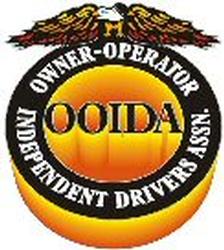
OOIDA files as intervenor in lawsuit
The granting of long-haul trucking authority to Mexico-domiciled motor carriers operating in the U.S. would adversely affect small-business truckers and highway safety, the Owner-Operator Independent Drivers Association stated in a federal court filing on Tuesday, April 7.
On behalf of the Association and its members, OOIDA filed a petition to intervene in a lawsuit brought by the International Brotherhood of Teamsters, Advocates for Highway and Auto Safety and the Truck Safety Coalition in March against the U.S. Department of Transportation and the Federal Motor Carrier Safety Administration.
“As the representative of small business truck drivers, OOIDA has a different practical and legal perspective from the other Petitioners regarding the threat to highway safety posed by the operation of commercial motor vehicles by Mexico-domiciled trucking companies on roadways throughout the United States,” OOIDA’s litigation counsel, The Cullen Law Firm, stated in the filing in the U.S. Court of Appeals for the Ninth Circuit.
“Additionally, the economic interests of small business truck drivers threatened by competition from Mexico-domiciled carriers differs from the interests represented by the petitioning Teamster groups and highway and truck safety advocate organizations,” the Association stated.
FMCSA, an agency of the U.S. Department of Transportation, issued a report to Congress on Jan. 9 that stated the agency’s intentions to begin granting long-haul authority to Mexico-based motor carriers.
The agency concluded in its report to Congress that Mexico-based motor carriers are as safe as, or safer than, their U.S. and Canadian counterparts in spite of lack of data to support the determination.
FMCSA stated in its report that the performance of the pilot program participants and more than 900 enterprise motor carriers, including 351 that joined during the pilot program, justifies no changes to the regulations. Enterprise motor carriers are U.S. based motor carriers with 55 percent or more Mexico ownership and were not technically part of the pilot program.
The Teamsters and advocate groups called the report “arbitrary and capricious” in their lawsuit filed March 10 in the U.S. Court of Appeals for the Ninth Circuit in San Francisco.
The lawsuit breaks down inspection data on the pilot program participants as well as the U.S.-based enterprise carriers the agency included in its data and assessments. The complaint alleges that the agency’s final determination on the safe operation of pilot program participants is off the mark.
The plaintiffs’ assessment mirrors the conclusion of a 2014 audit on the program conducted by the U.S. Department of Transportation Office of Inspector General. The audit released by the Inspector General in December 2014 reported that the program failed to prove all Mexico-based motor carriers should be granted full access to U.S. highways, according to an audit on the program released by the Department of Transportation Office of Inspector General.
The audit concludes that FMCSA did provide sufficient monitoring and enforcement of the pilot program participants. But because the program lacked an adequate number of Mexico-domiciled pilot program carriers, the program did not result in statistically valid findings.
OOIDA has watchdogged and participated in agency proceedings throughout the history of cross-border pilot programs, and has filed numerous comments over the years in response to agency reports, environmental assessments and several preauthorization safety audits for Mexico-based carriers.
“OOIDA’s interests and the interests of its members will be directly and adversely affected by the grant of (long-haul) operating authority.”
“OOIDA participated in the agency proceeding related to the 2007 Demonstration Project. OOIDA members have independently participated in these agency proceedings,” the Association stated in its court filing.
“Accordingly, the Owner-Operator Independent Drivers Association, Inc. respectfully moves for leave to intervene in the challenge to the Federal Motor Carrier Safety Administration’s Hours-of-Service rule.”
OOIDA’s 150,000 members operate more than 211,000 heavy-duty trucks and represent nearly half of the total number of active motor carriers operating on U.S. highways.









